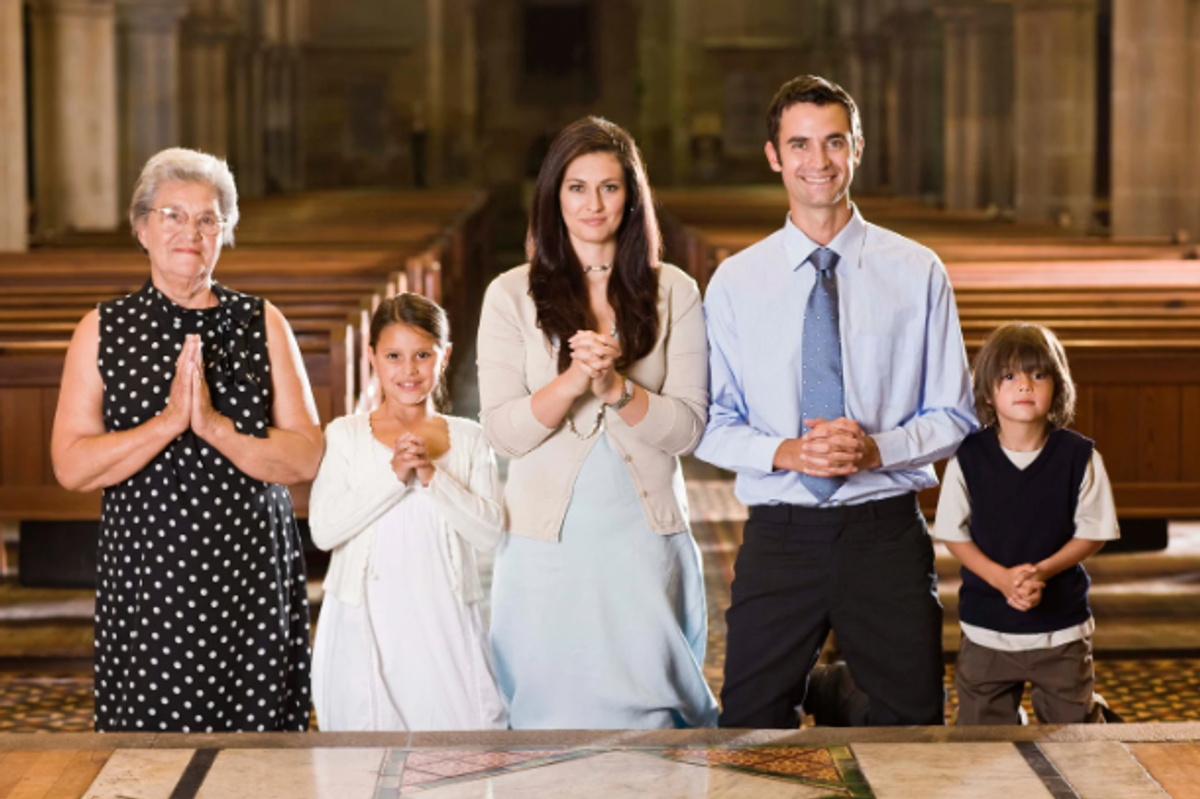Man makes a perfect case for why you'll find so many narcissists at church
"I don't think Christianity creates narcissists, but I do think it attracts them."
A family at church.
There’s a bizarre paradox in American life where some of the most shameless people claim that they are devout followers of God. You see it all the time with shady politicians and even in the pulpit, where it seems like every few months, some famous preacher is getting caught up in a scandal motivated by greed or sex.
There are also those people you meet in church who claim to be the most Godly on Sunday, but seem to forget His teachings during the week. What gives? Why is it that people who claim to be the most religious are often self-centered, arrogant narcissists? A popular TikToker who goes by Johnny and posts about politics and American culture says it’s because narcissists have a special love for religion. After all, it perfectly complements their toxic personality.
“Have you guys ever noticed that it seems like narcissists seem to love Christianity? And it's not because they're genuinely spiritual, but because it gives them everything that they want: Admiration, forgiveness, and zero accountability,” Johnny opens his video.
@happytimes503 #religion #psychology #christianity #narcissism #accountability
“They wanna do whatever they want and still be seen as good. Then there's the image side of it, of course. You know, churches reward the appearance of virtue —being godly, family-oriented, moral. It's a stage narcissists thrive on,” Johnny continued. "They get to stand up, talk about values, saving the kids, while living the opposite in private.”
What is a narcissist?
Narcissistic personality disorder is a mental health condition where people have a grandiose sense of self-importance. They are known to excessively brag about their achievements and fantasize about success, power, beauty, intelligence, and love. They have an intense need for admiration due to their fragile self-esteem and are preoccupied with how others feel about them. People should be wary around them because they are known to take advantage of others deliberately and can fake humility to protect their sense of self-importance.
Richard Ramos, founder of Parents on a Mission, a faith-based organization to help at-risk youth and families, says that churches are often positioned to be exploited by narcissists. “Many religious spaces value obedience, emotional vulnerability, and moral certainty, and of course, narcissists can exploit this to elevate themselves while hiding behind righteousness,” Ramos told Upworthy.
How to identify a narcissist in a religious setting
When do you know that someone in your house of worship is a narcissist? “You need to be aware of leaders or members who constantly put themselves front and center, discourage questioning, and confuse charisma with character,” Ramos told Upworthy. The Parents on a Mission founder believes that when combating narcissists in a religious setting, it’s best to enlist the entire community.
“If you’ve begun to sense narcissistic patterns in your faith community’s leadership, trust that instinct, and don’t carry the weight alone,” Ramos said. “Reach out to trusted voices, whether inside or outside your faith circle. You are not being ‘divisive’ by protecting your peace. You are discerning. Set clear boundaries and remember, spiritual leadership should never shrink your soul. True faith brings freedom, not fear. Confidence, not confusion. Worth, not shame.”

